Ellis Rugby – Men’s Classic England Rugby Shirt Polo Triple Blue – Purple – 2XL
K2,725.94
Ellis Rugby – Mens Classic England Rugby Shirt Polo Triple Blue – Purple
Manufacturing of Classic England Rugby Shirt
Manufactured from 100% chunky pique cotton,Ellis Rugby Classic England Rugby Shirt Polo Triple Blue features a quartered crest as well as the vintage Cambridge Lion above the crest. Inside the shield is the English Rose as well as symbols celebrating C.N. Lowes military achievements. Also includes contrast inner placket, arm rib and collar stand. In addition, Ellis Rugby branding features on the armsin the form of the Ellis Rugby Crest.
100% chunky pique cotton.
Features a quartered crest as well as the vintage Cambridge Lion above the crest.
Includes contrast inner placket, arm rib and collar stand.
Ellis Rugby branding features on the arms in the form of the Ellis Rugby Crest.
An Introduction to Classic England Rugby Shirt
Produced by Ellis Rugby, Classic England Rugby Shirt Polo Triple Blue is an exceptional quality shirt. The Classic England Rugby Shirt Polo Triple Blue inspired design celebrates the great England Rugby sides of 1913 and 1914. Key to the success of those great teams was C.N. Lowe who while at Cambridge University won rugby blues in 1911, 1912 1913, making him a rare Triple Blue. Weve incorporated a quartered crest containing the English Rose and symbols celebrating C.N. Lowes military achievements.
ENGLAND GRAND SLAM 1913
Prior to the1913 Five Nations Championship, England entertained the touring South African Springbok team. England played them at Twickenham on the 4th January 1913. The Boks were a formidable team captained by Billy Millar and they won 24 of their 27 games. This included comfortable victories over Scotland 16 points to nil. Also, Ireland 38 points to nil and amuch closer affair with Wales in Cardiff by 3 points to nil.
It was expected they would be far too strong for the home team. Yet England almost pulled off an unlikely victory and with a little more self belief would have won the game. In the end, the try by the exciting English Centre Ronnie Poulton wasnt quite enough. And the two kicks by Douglas Morkel. Plus the try by Gerhard Morkel ensured the tourists kept their unbeaten international record.
Although disappointing for England, this fine performance laid the foundations for what would become the countries greatest achievement on the rugby field inthe coming months.
The 1913 English Five Nations Championship squad was led by the inspirational Captain Norman Wodehouse. Wodehouse was a fine uncompromising forward.He was a line-out specialist, but more importantly a fine leader of men, both on and off the field. Hed originally been capped in 1910 against France. And was then an ever present in the side over the next two seasons. In 1912 he was promoted to captain.
The England team was beginning to look at a quality side with Wodehouse in charge. The exciting play of Poulton and to this they added the talents of Charles Cherry Pillmanand Cyril Lowe. Pillman was a speedy, dynamic flank forward. And although Lowe was not physically imposing, standing 5 ft 8 in 1.73 m and weighing around the nine-and-a-half stone. He made up for this with exceptional pace, swerve combined great passing skills. The combination of Poulton and Lowe as Centre and Wing was particularly mouth-watering.
First England defeated Wales at Twickenham by 12 points to nil. A game in which Pillman was central to the victory by scoring an excellent try and Poulton dropped a goal. Followed by an emphatic 20 points to nil victory over France in which Pillman collected a brace of tries. It was then over to Dublin and a confident 15 points to 4 win. The final match was a really tight game with England defeating Scotland 3 points to nil.
England won theTriple Crownfor the fourth time and the Grand Slamfor the first time. They only conceded one score during the tournament, a dropped goal scored byIreland. Wodehouse became the first English captain to lead his side to a clean-sweep of victories. But sadly in his last season of rugby, he lost his life in 1941 when his merchant vessel was sunk by German submarines.
ENGLAND GRAND SLAM 1914
With noWodehouse, due to his Navy commitments, England gave the Captaincy to their star three-quarter Ronnie Poulton. Poulton made his name playing for Harlequins, Liverpool F.C., Balliol College andOxford University RFC. He was a talent and is one of only three men to score ahat-trick of tries inThe Varsity Match he scored five in 1909, still the individual record for the fixture..
As well as a great player, Poulson had great character. When authorities punished some Devon fisherman and farmers who received money to play, Poulton challenged them on the question of payment to players. arguing that recompensing workers for lost wages did not amount to professionalism, but would allow rugby to flourish amongst all social classes. He was ignored.
England rode their look in the first game against Wales a team they had not beaten away since 1895. Bruno Brown and Blackheaths Pillman scored tries and Fred Chapman kicked two goals for a tight 10 points to 9 victory.
About Matches
40,000 spectators gathered for Englands next game against Ireland. Poulton came up against his Liverpool F.C. club mate in Irish flyhalf andcaptain Dickie Lloyd, who praised Poultons fine performance in the 17 points to 12 win.
Next was against Scotland for the Calcutta Cup and the Triple Crown. This as a match dominated by the legendary England Winger Cyril Lowe who scored a superb Patrick of tries to put his team well in front. Scotland came back into the game late, but to Englands relief the game ended with the score in their favour 16 points to 15. The bad news was star flanker Cherry Pillman suffered a broken leg during the match.His place in the team for the final game against France taken by his brother, Robert Pillman, who gained his one and only cap in the encounter.
The final hurdle to the back-to-back Grand Slam achievement was France. The last international rugby match held before the First World War scheduled at Colombes in Paris on 13 April 1914. Poultons performance was truly outstanding, scoring four tries in Englands 3913 victory. Poulton renowned for his elusiveness and glamorous style of play the very mention of swerving sends ones thoughts to the late Ronald Poulton, the swerver par excellence
This England Rugby team was one of the finest teams. But their full potential was never seen because five players from the team lost their lives in the First World War. Poulton, James, Watson, Arthur Dingle, Francis Oakley, and Arthur Harrison, who received the Victoria Cross award.
What’s in the box
1 x Rugby Polo Shirt
Only logged in customers who have purchased this product may leave a review.
Related products
Sport Clothing
Sport Clothing
Sport Clothing
Sport Clothing
Sport Clothing


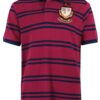
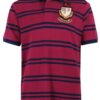
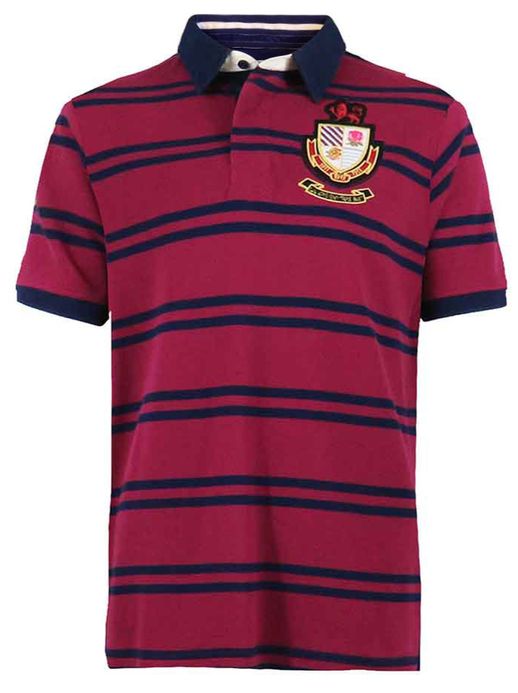
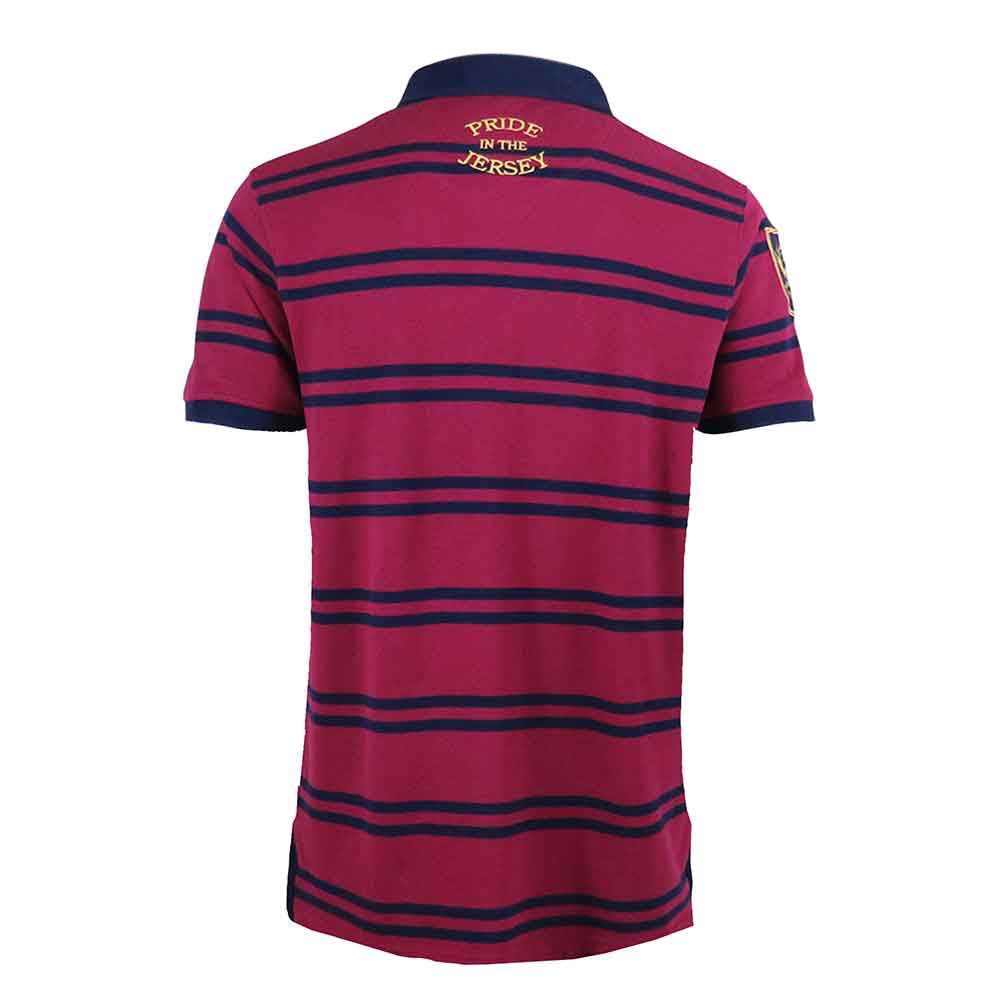
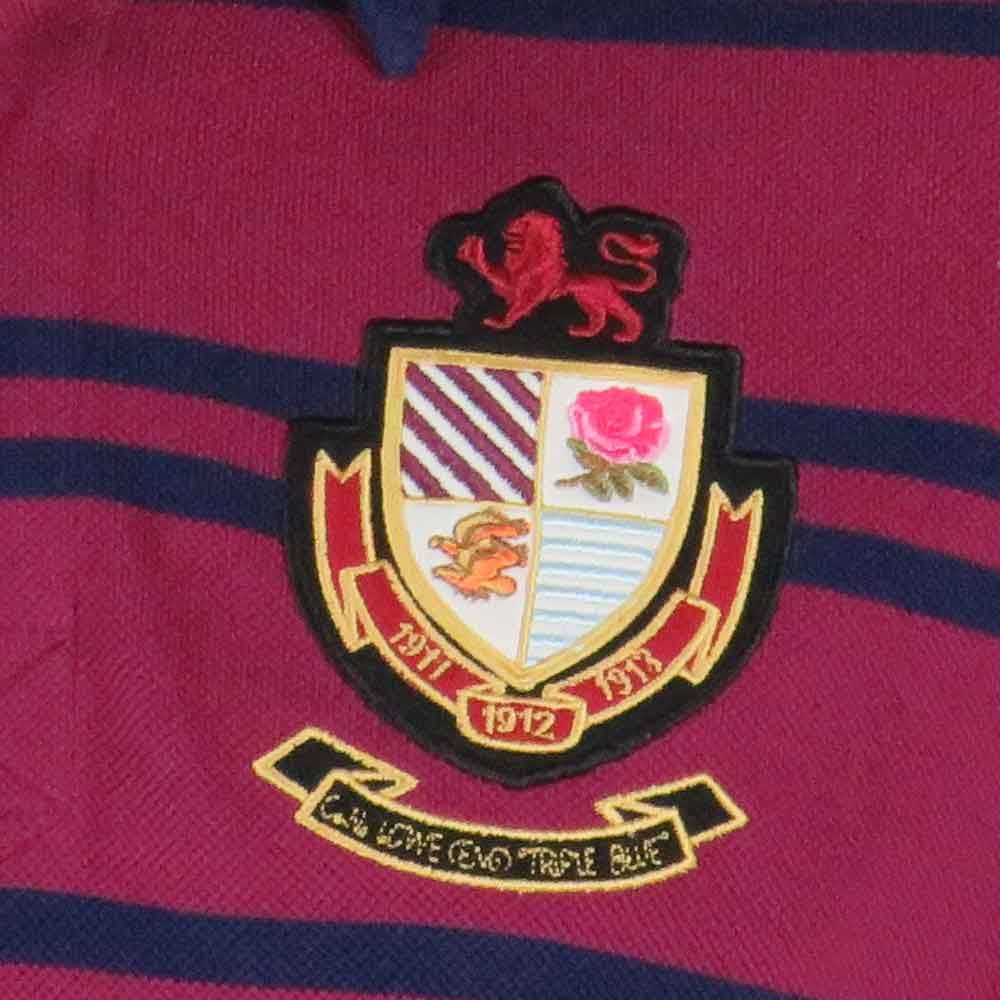
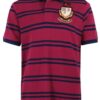

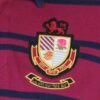
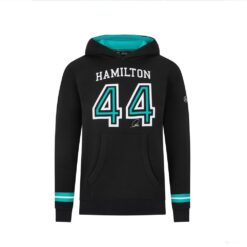
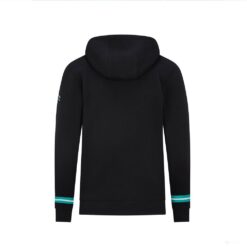


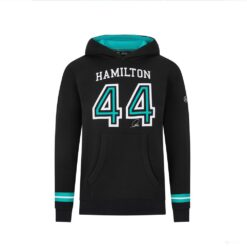
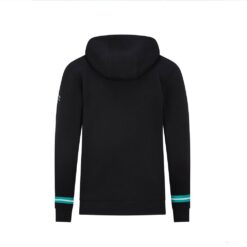
![USA Pro Ladies All Purpose Leggings - Black [Parallel Import] - 36 x 32'](https://raines.africa/wp-content/uploads/2024/12/usa-pro-ladies-all-purpose-leggings-black-parallel-import-36-x-32-1-247x247.jpeg)
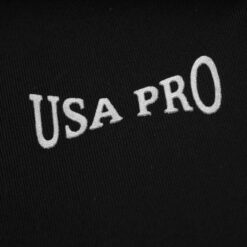



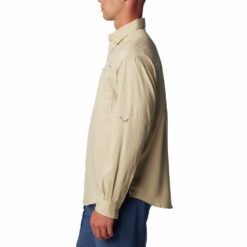


![USA Pro Ladies All Purpose Leggings - Black [Parallel Import] - 34 x 34'](https://raines.africa/wp-content/uploads/2024/12/usa-pro-ladies-all-purpose-leggings-black-parallel-import-34-x-34-1-247x247.jpeg)
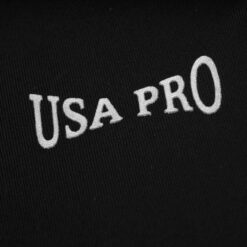
Reviews
There are no reviews yet.